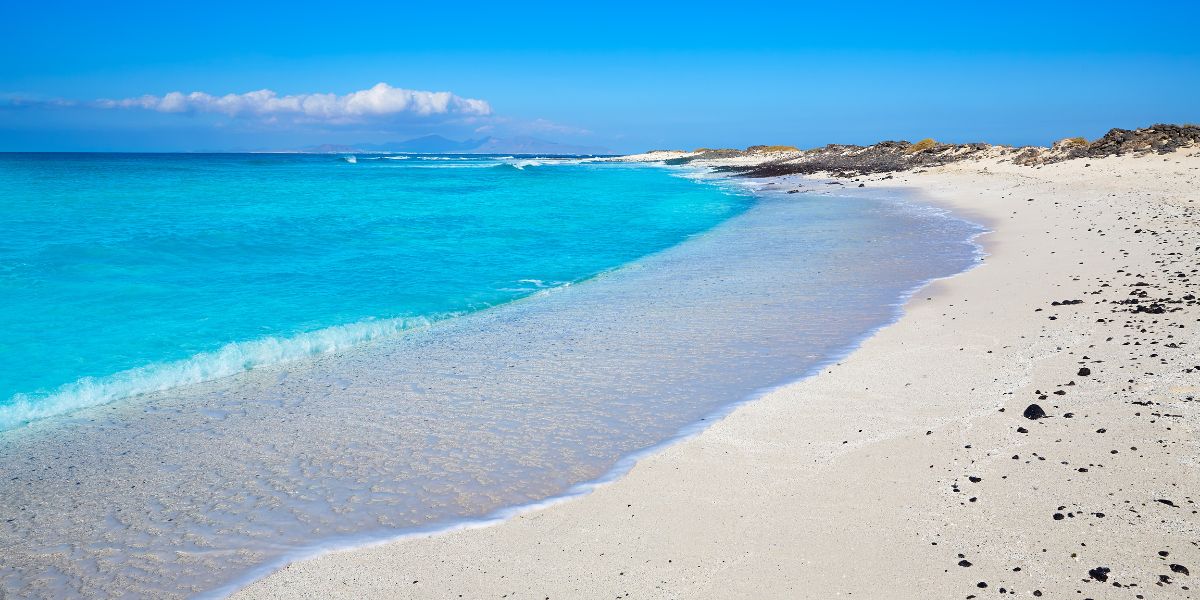The Canary Islands are a collection of Spanish islands located just off the northwest coast of Africa.
They consist of Tenerife, Fuerteventura, Gran Canaria, Lanzarote, La Palma, La Gomera, El Hierro, La Graciosa, Alegranza, Isla de Lobos, Montaña Clara and Roque del Oeste.
The currency in the Canary Islands is the Euro, although many restaurants, hotels and shops will accept credit and debit cards for certain purchases. ATMs are also scattered frequently across all the islands.
Consistently hot climate
Renowned for its consistently hot climate, tourists from the UK constantly flock to the Canary Islands at all times of the year to embrace the warm weather and take up a tan.
Flying from London to Tenerife will take around four-and-a-half hours on non-stop flights, but this can increase to a variety of lengths depending on the duration of stops.
Any other forms of transportation involving train, ferry or car would require two to three days of travelling.
Climate
The Canary Islands has the same time as British Summer Time and is one hour ahead of Greenwich Mean Time. This should not necessitate any major adjustments to your diabetes management.
The climate of the Canary Islands is one of the primary reasons tourists visit, with average temperatures of around 22°C greeting most islands throughout June and September.
Due to this warm weather, prolonged periods of activity, such as walking, can result in enhanced insulin absorption.
If you take insulin, you should carefully monitor your blood sugar levels, especially if you are planning periods of physical activity. You could consider reducing your dosages if you are worried about hypoglycemia.
Vaccinations
There are no mandatory vaccinations required to enter the Canary Islands, however rabies is present in bats, so it is advised for those planning activities in remote areas that put them at risk for bat bites to receive a rabies vaccine.
If you believe you may require this vaccine then it is advised to consult your doctor eight weeks before travelling which should allow enough time for you to receive it.
Otherwise, the opportunity should be taken to ensure existing vaccinations such as your yearly flu jab and those against polio and tetanus are also up to date.
UK Global Health Insurance Card
Apply for a GHIC (UK Global Health Insurance Card) – you can apply online at https://overseas-healthcare.nhsbsa.nhs.uk/get-healthcare-cover-travelling-abroad/start and you can receive free cover in some European countries.
Insulin
You should note which syringes are available in the Canary Islands, with U-100 syringes the most commonly used.
The vast majority of insulin in the UK is U-100 insulin. If you need to take a different strength of insulin, say in an emergency, it’s important that you use the correct device and syringes for that insulin.
For example, you would use a U-40 syringe for U-40 insulin. You will need to work with a doctor getting the right dose if you’re using a different form of insulin.
Ensuring access to medication
Medication is available in the Canary Islands, but payment is required from a pharmacy, for which the Spanish translation is “Farmacia”.
However, possessing an GHIC card allows you to receive treatment at a lesser cost and this money can be recouped when you get back into the UK. Blood and urine testing kits are available from any pharmacy in the Canary Islands.
The emergency services telephone number to be called in the Canary Islands is 112.
It is advisable to contact the manufacturing company of your medication prior to leaving the UK to find out what is available in the Canary Islands if your medication gets lost, stolen or damaged. It is also worth checking to see what different names your medication may be listed as.
Diabetes associations
It is important to note the diabetes associations in the country you are travelling to in case of an emergency
There are two diabetic associations in the Canary Islands that can be contacted for information prior to your stay. The addresses of these associations are:
- Sociedad Espanola de Diabetes (a member of the International Diabetes Federation since 2000), Eugenio Salazar 23 Entreplanta B, 28002 Madrid, Canary Islands
Tel: +34-91-4013342
Email: [email protected] - Federación de Diabéticos Españoles (a member of IDF since 2013), C/ de la Habara 35 posterior, Centro Civico “La Avanzada”, ES-28945 Fuenlabrada – Madrid, Canary Islands
Tel: +34-91-6908840
Email: [email protected]
Questions
- How is blood glucose measured in Canary Islands? Blood glucose levels are measured in mg/dl
- What language is spoken in Canary Islands? Spanish, although many locals will speak English excellently, especially those that work in a customer service environment.
- Will I need an international driving license when driving in Canary Islands? No
- If I want to hire a vehicle during my visit, will I face any form of discrimination? No
- What sugar free drinks are available in Canary Islands? Most diet soft drinks, such as Diet Coke, Diet Pepsi and mineral water







